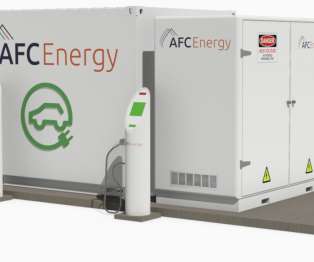Gel polymer electrolyte for stabilizing sulfur composite electrodes for long-life, high-energy Li-S batteries
Green Car Congress
JULY 24, 2017
In a paper in the Journal ChemSusChem they report that using a novel gel polymer electrolyte (GPE) enables stable performance close to the theoretical capacity (1675 mAh g -1 ) of a low cost sulfur-carbon composite with high active material loading, i.e. 70% S. Agostini et al. Click to enlarge. Navarra, M. and Scrosati, B.


























Let's personalize your content